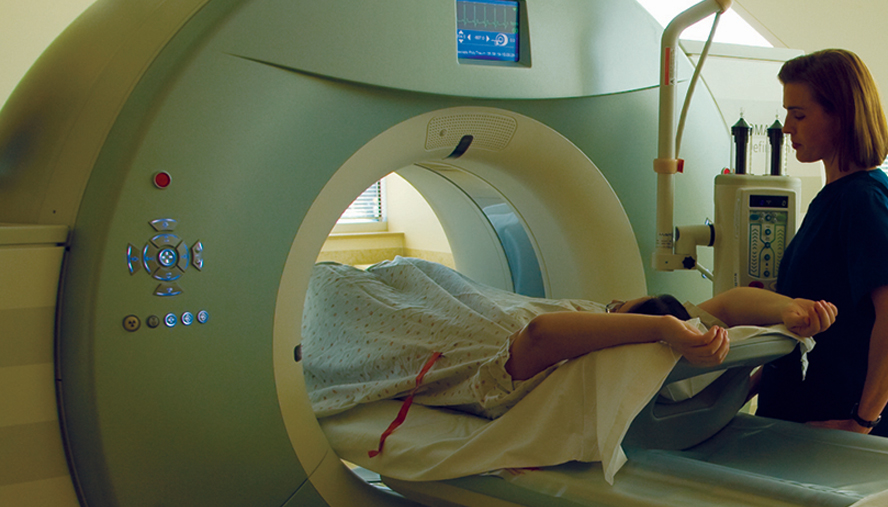Scans for Lung-Cancer Screening Could Detect Other Smoking-Related Diseases
CT scans provide valuable Information on heart disease, osteoporosis and emphysema
Denver, CO —
Lung cancer screening has been widely endorsed by the U.S. medical community as an effective way to save lives by detecting lung cancer at earlier, more treatable stages. A new study by researchers at National Jewish Health indicates that the low-dose CT scans used in lung cancer screening can also provide valuable information to detect smoking-related heart disease, osteoporosis and emphysema. Early detection of those diseases could lead to interventions that improve health and reduce harm from those diseases.

“While lung cancer kills hundreds of thousands of smokers every year, most smokers die of other smoking-related diseases such as heart attack, stroke and chronic obstructive pulmonary disease,” said Elizabeth Regan, MD, PhD, Associate Professor of Medicine at National Jewish Health and lead author of the study, published in the journal Chronic Obstructive Pulmonary Diseases. “With relatively little extra work, the low-dose CT scans used for lung cancer screening could identify previously undetected cardiovascular disease, emphysema or osteoporosis.”
The researchers reviewed 4,078 CT scans of participants in the COPDGene trial who met criteria for lung cancer screening (55-80 years old, 30+ pack-year smoking history). They looked for evidence of coronary artery calcification, a measure of cardiovascular disease, emphysema and osteoporosis, two other diseases associated with smoking.
Overall, 77 percent of patients showed signs of cardiovascular disease, emphysema or osteoporosis. The researchers identified previously undetected cardiovascular disease in 1,107 (25 percent) of patients; emphysema in 290 cases (7 percent); and osteoporosis in 1,780 (46 percent).
Patients with new diagnoses of those diseases were more likely to suffer adverse events in the next six years. About 7 percent of those with a new diagnosis of cardiovascular disease suffered a heart attack or stroke in the next five years, about 50 percent more than those who did not have cardiovascular disease. Also, 44 percent of those with a new diagnosis of osteoporosis suffered vertebral fractures in subsequent years, about twice as many as those who did not have osteoporosis. About 35 percent of patients with newly diagnosed emphysema suffered pneumonia or exacerbations of lung symptoms in the coming years, just slightly more than those not diagnosed with emphysema.
“With early detection and appropriate treatment of these diseases, we could reasonably expect to reduce mortality, improve function and quality of life and reduce risk of fractures,” said Jay Finigan, MD, senior author of the study and Medical Director of the Lung Cancer Screening Program at National Jewish Health. “We believe there is tremendous potential added value to be gained by further analyzing lung cancer screening CT scans for these other smoking-related diseases.”
National Jewish Health is the leading respiratory hospital in the nation. Founded in 1899 as a nonprofit hospital, National Jewish Health today is the only facility in the world dedicated exclusively to groundbreaking medical research and treatment of children and adults with respiratory, cardiac, immune, and related disorders. Patients and families come to National Jewish Health from around the world to receive cutting-edge, comprehensive, coordinated care. To learn more, visit the media resources page.
Media Resources
We have many faculty members, from bench scientists to clinicians, who can speak on almost any aspect of respiratory, immune, cardiac and gastrointestinal disease as well as lung cancer and basic immunology.
Media Contacts
Our team is available to arrange interviews, discuss events and story ideas.
- Adam Dormuth
303.398.1002 office
970.222.5034 mobile
dormutha@njhealth.org - Jessica Berry
303.398.1082 office
303.807.9491 mobile
berryj@njhealth.org
